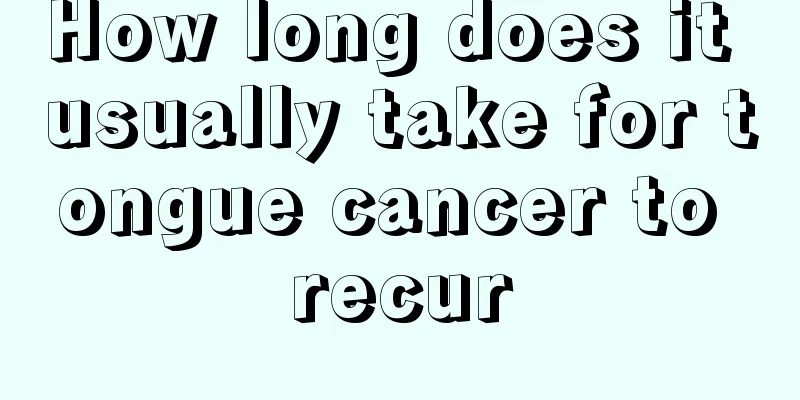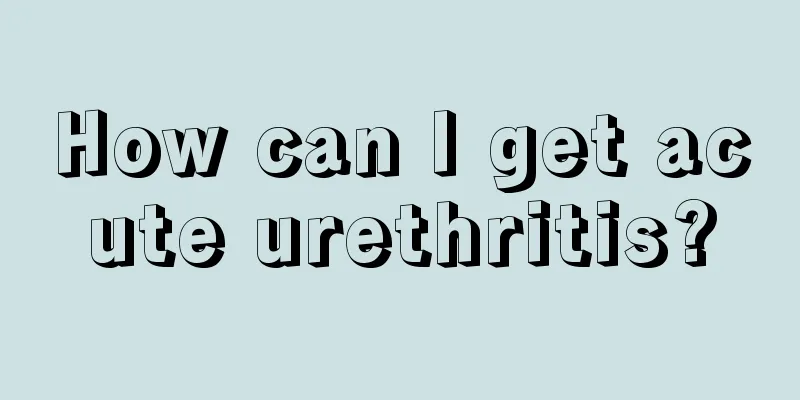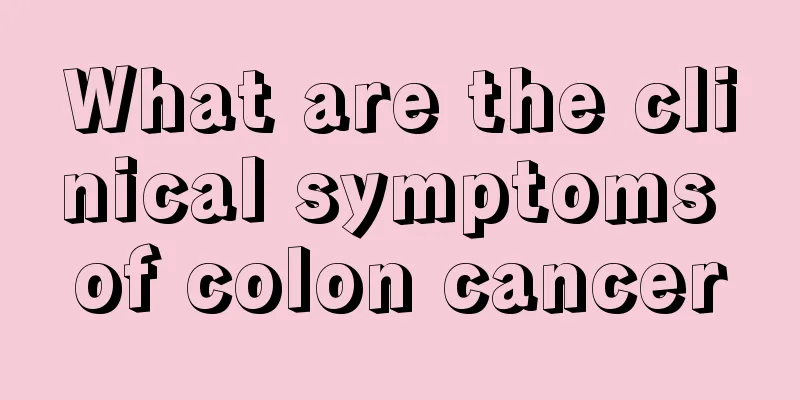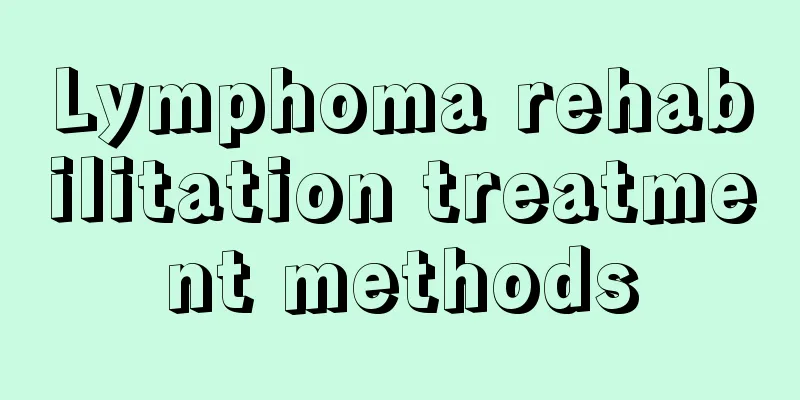Can nasal cleaning improve rhinitis?
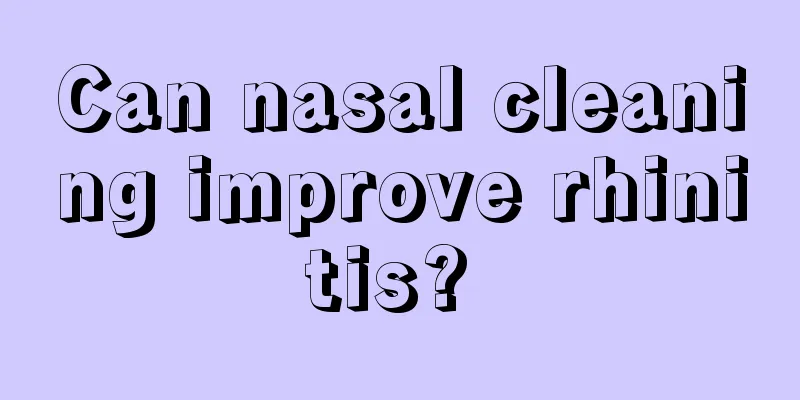
|
As the pace of life accelerates, people's stress is also increasing, and various diseases are coming accordingly. Rhinitis is one of them. It bothers us all the time and brings a lot of inconvenience to our work and life. And if you don't take it seriously, it will seriously affect your health. So is there any way to alleviate and improve it? Will nasal irrigation have any effect on it? 1. Nasal irrigation Nasal Irrigation Overview Nasal irrigation is a commonly used method for treating nasal and sinus diseases. It is popular among doctors and patients due to its good efficacy and tolerability. With the popularity of nasal endoscopy, nasal endoscopic surgery has become a routine operation in otolaryngology. After nasal endoscopic surgery, how to promote the early recovery of the surgical mucosa and prevent surgical adhesion and sinus closure is an urgent problem to be solved in clinical practice. Nasal irrigation is an important measure to alleviate the above-mentioned postoperative complications. Therefore, nasal irrigation has been studied in depth at home and abroad. This entry introduces the latest research progress to you. 2. Indications Nasal irrigation has been widely used in the treatment of various nasal and sinus diseases, including acute and chronic rhinitis. Sinusitis, allergic and non-allergic rhinitis, non-specific nasal symptoms (such as postnasal discharge), nasal septum perforation, post-nasal surgery, and after nasal radiotherapy. It can also be used for the common cold. [1] It is not just an auxiliary treatment method, but an important part of the treatment process. For allergic rhinitis, Garavello et al. found that hypertonic saline nasal irrigation can significantly improve patients' symptoms and reduce the use of oral antihistamines. It is also recommended that patients with seasonal allergic rhinitis use hypertonic saline to rinse their nasal cavity during the pollen season. For the nasal cavity, paranasal sinuses, etc., nasal irrigation after surgery can significantly reduce the patient's adverse reactions such as mucosal edema and scab formation. [2] For example, Klossek et al. found that nasal irrigation and topical glucocorticoid nasal spray after endoscopic surgery for nasal polyposis can consolidate the efficacy of endoscopic surgery and reduce the chance of recurrence. For the above reasons, the European Academy of Allergy and Clinical Immunology (EAACI) and the European Rhinological Society's guidelines on sinusitis and nasal polyps list nasal irrigation as an important treatment measure for sinusitis and nasal polyps. 3. Mechanism of Action Most people believe that the exact effect and mechanism of nasal irrigation may be related to the following mechanisms: ① Improve mucociliary function[3]. ②Reduce mucosal edema. ③Reduce inflammatory factors. ④ Physical or mechanical removal. [4] The nasal mucus layer is the body's first line of defense, consisting of a sol layer and a gel layer. Foreign bacteria, fungi, and allergens can be captured by the mucus layer. The movement of cilia is mainly controlled by the gel layer, and the movement of cilia toward the nasopharynx allows foreign matter to be swallowed or spit out in the nasopharynx. Therefore, the functional state of cilia is closely related to the functional state of the nasal cavity. Therefore, when studying the mechanism of action of nasal lavage solutions, most of the studies are conducted through the effect of nasal lavage on cilia. People have studied the effects of different nasal lavage solutions on mucosal cilia from different angles. IBoek et al. tested the effects of Ringer's solution, normal saline, 7% and 14% hypertonic saline on the ciliary beat frequency (CBF) of the refrigerated sphenoid sinus mucosa and found that Ringer's solution had no effect on CBF, normal saline slightly reduced CBF, 7% hypertonic saline could cause temporary ciliary arrest, but 14% hypertonic saline would cause irreversible ciliary arrest. Therefore, he also believed that Ringer's solution was a better choice for nasal irrigation. Talbot tested the mucociliary clearance rate of normal people before and after nasal irrigation with buffered hypertonic saline (3%, pH 7.6) and buffered saline, and found that buffered hypertonic saline could significantly improve the mucociliary clearance rate. He believed that this was because buffered hypertonic saline could increase the thickness of the mucus sol layer and reduce the viscosity of the mucus, thus making it more conducive to the movement of cilia. Therefore, he recommended the use of buffered hypertonic saline solution to rinse the nose. Some studies have also shown that changes in pH have no significant effect on mucociliary clearance. [5] Georgitis found that nasal irrigation can significantly reduce the histamine concentration in patients with perennial allergic rhinitis, reduce the release of mast cells and alkali phils, and reduce the release of L1'C4 within a certain period of time. 4. Safety and Tolerance Nasal irrigation is a safe treatment method with few side effects. Only a small number of literature reports have reported the following side effects, such as local burning, itching, tearing, nose bleeding, headache, earache, and discomfort caused by the outflow of fluid into the sinuses after irrigation; however, most people believe that these side effects are very mild and do not affect patients' satisfaction with nasal irrigation. lKeeri et al. asked 134 patients through a questionnaire, and the results showed that 95% of the patients thought that nasal irrigation was a simple and easy treatment method, and 84.7% of the patients thought that this treatment method was very comfortable. Therefore, he believes that nasal irrigation is a treatment method recognized by patients. [6] Rabago et al. found through research that nasal irrigation is convenient, quick and easy to operate. It can alleviate patients' symptoms and significantly improve their quality of life. In addition, most patients can reduce the concentration of flushing fluid and reduce the occurrence of side effects by adapting to the flushing procedure. Therefore, nasal irrigation has good safety and tolerability. V. Device and Method As for the devices and methods for nasal irrigation, one is nasal irrigation with a neti pot, one is nasal spray with a nasal washer, and the third method is nasal spray with a nasal washer machine. Nasal spray can diffuse more effectively into the maxillary sinus and nasal cavity sinus complex, and has a better cleaning effect on the nasal cavity and sinus cavity. The most common clinical use of air-water type allergic nasal irrigation machine. It can effectively penetrate the air-water cleaning particles into the nasal cavity and sinus cavity, and thoroughly clean all kinds of allergens, mold cells and inflammatory mediators on the nasal mucosa and nasal cilia. 6. Nasal rinse Generally, unless otherwise directed by a physician, 0.9% isotonic saline can be used for flushing. For patients with sinusitis, hypertonic saline solution such as 2-3% can be used for flushing. In addition, for postoperative patients, drugs such as gentamicin, dexamethasone or furosemide can be added to achieve better and more significant effects in reducing swelling and inflammation. |
<<: Causes of itchy palate due to allergic rhinitis
>>: Is cold water nasal washing useful for rhinitis?
Recommend
Will breast hyperplasia nodules move?
Hyperplastic breast nodules may be somewhat activ...
Nursing care for patients with nasopharyngeal carcinoma undergoing radiotherapy
It depends on the recurrence. According to statis...
Experts introduce the early symptoms of gastric cancer
Many people miss the best time to treat gastric c...
What are the important risk factors for liver cancer? These 5 points are important risk factors for liver cancer
Liver cancer has a high morbidity and mortality r...
4 small folk remedies to treat laryngeal cancer
Patients with laryngeal cancer often experience u...
Cryotherapy for common warts
Before common warts occur, they will destroy your...
What is the normal value of human platelets
If the human body's platelets are healthy, it...
What are the common symptoms of lung cancer? These symptoms are most obvious when lung cancer occurs
In today's society, the incidence of cancer i...
Can ginger and jujube tea be drunk on an empty stomach?
Ginger and jujube tea is a very healthy tea drink...
Fetal boy or girl development process
From a biological point of view, the difference i...
Can you walk in the late stage of liver cancer
Can patients with advanced liver cancer walk? Thi...
What does a tooth root look like
Teeth are our important organs. People with bad t...
What issues should patients with bile duct cancer pay attention to
What issues should patients with bile duct cancer...
How to relieve itching and swelling after being bitten by a mosquito
There are more mosquitoes in summer. Being bitten...
How long can one live with mid-stage laryngeal cancer
The age of onset of laryngeal cancer is mostly be...

